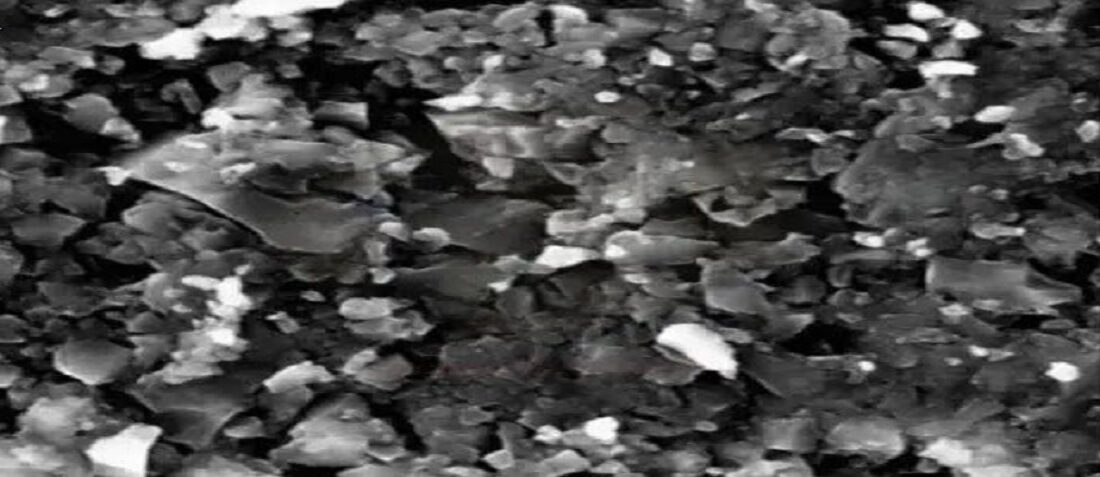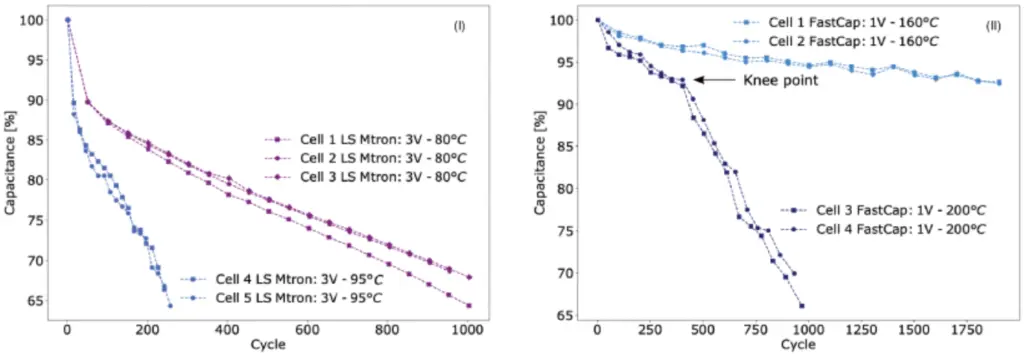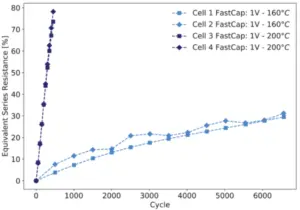
A Machine Learning Degradation Model for Supercapacitors Operated at High Temperature
- Posted by doEEEt Media Group
- On August 23, 2021
- 0
A team of researchers from the UK, The Netherlands, Germany, and USA led by Heriot-Watt University, Edinburgh, UK, investigated the behavior of electrochemical capacitors (supercapacitors) at extreme, over-specification high-temperature environment by machine learning degradation model.
Electrochemical capacitors (ECs) have only recently been considered an alternative power source for telemetry sensors of drilling equipment for geothermal or oil and gas exploration. The lifecycle analysis and modeling of ECs are underrepresented in the literature compared to other storage devices, e.g., Li-ion batteries.
This research demonstrates a significant advancement in the ability to understand and predict the life expectancy of critical components. Our experimental results show that end of life, defined as a 30% decrease in capacitance, occurs at 1,000 cycles when the environmental temperature exceeds the maximum operating temperature by 30%.
David Flynn, Professor, Heriot-Watt University

The GPR is validated on a total of nine commercial cells from two different manufacturers, achieving an average root mean squared percent error of less than 2% and a mean calibration score of 93% when referenced to a 95% confidence interval. The model can be utilized to determine the EC degradation rate at a range of operating temperature values.
To deal with this difficulty, the researchers concentrated on ECs run at temperatures ranging up to 200 °C, particularly the operation of ECs onboard downhole drilling equipment for geothermal or oil and gas exploration.

Capacitance degradation trend for all samples. (I) LS Mtron cells, (II) FastCap cells.

Resistance degradation trend FastCap cells.
Downhole tools are complicated electromechanical systems that execute crucial functions in drilling operations and have been designed to resist vibrations, shocks, and extreme temperatures.
In the study, the researchers deployed a machine-learning algorithm to forecast degradation trends for electrochemical double-layer capacitors beyond the knee-point start when being cycled at high temperature in an oil and gas drilling surrounding.
Operations performed at high temperature expedites EC degradation, and thus the worst-case scenario for the referred application was analyzed.
The study was recently reported in the journal IEEE Access and guided by Professor Flynn’s Smart Systems Group at Heriot-Watt University, collaborating with Baker Hughes, University of Maryland, and the Lloyds Register Foundation.
Journal Reference:
Roman, D., et al. (2021) A Machine Learning Degradation Model for Electrochemical Capacitors Operated at High Temperature. IEEE Access. doi.org/10.1109/ACCESS.2021.3057959.
- Miniature RF Connectors for high-performance testing - April 24, 2025
- Space-Grade components available for immediate delivery - April 10, 2025
- Managing EEE components for LEO and lower cost space missions - December 17, 2024


0 comments on A Machine Learning Degradation Model for Supercapacitors Operated at High Temperature